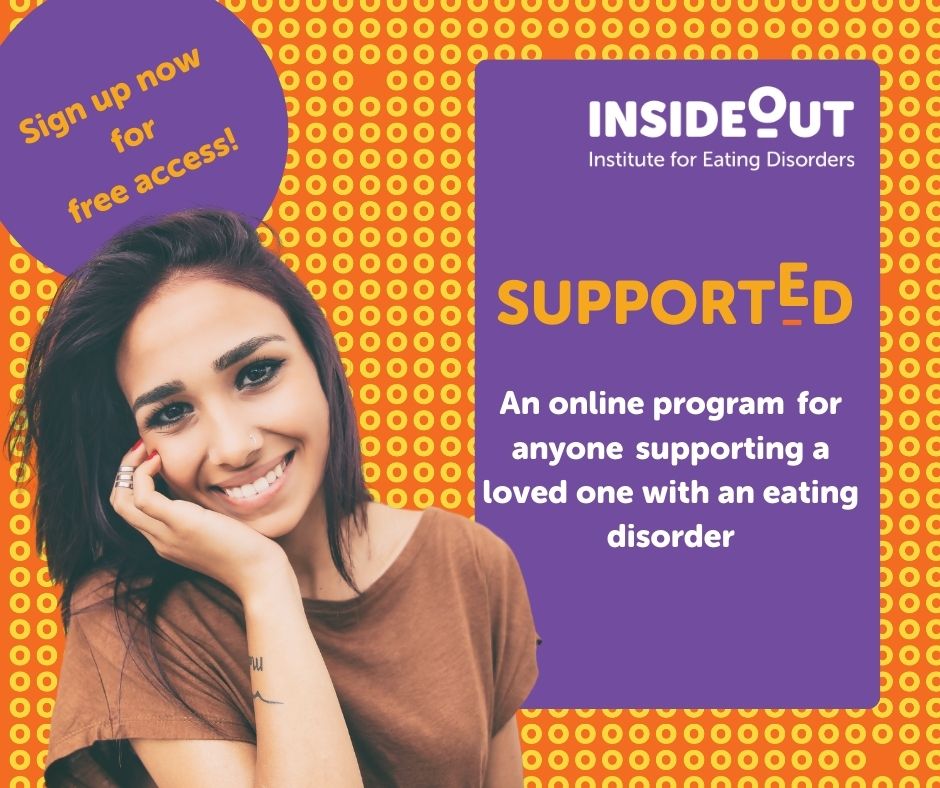The financial burden of caring for someone with an eating disorder: affordable treatment options.
Stacey’s daughter was diagnosed with anorexia nervosa just before her 19th birthday, after becoming unwell living away from home during her first year of university. She found it difficult to advocate for treatment because her daughter was technically an adult.
“I had to give up my job for six months. Here we are three years later just getting back on our feet,” she said.
Stacey’s story runs true for so many families and carers. Treatment for an eating disorder can come at a high cost; emotionally, physically, and financially. Financial costs are related to various aspects of the treatment: health insurance, hospital admissions, attending psychological and nutritional therapy, seeing various medical professionals, purchasing medications, and having medical tests. There may also be “hidden” costs such as the cost of transport to and from various treatments, or the cost of accommodation to be closer to specialist services.
It may be that you - or your loved one - can’t work at all, need to limit work or study, or can’t progress in the way you otherwise would have if they did not have an illness. If one or both of you are not able to continue work or study, this may cost you earnings or future earnings.
There are ways to potentially reduce the financial burden of treatment.
Medicare Benefits Schedule
Your loved one is potentially able to access a range of rebates for health services under the Australian Medicare Benefits Scheme (MBS), including the following:
Eating Disorder Plan: From November 1st 2019, individuals who meet the eligibility criteria for this plan can access up to 20 sessions with a dietitian and up to 40 psychological sessions with a mental health provider within a twelve month period. They must be referred to this plan by a medical professional, such as a GP.
Better Access to Mental Health Care (MHCP): GPs, Psychiatrists or Paediatricians can refer people with an eating disorder (who do not meet the criteria for the Eating Disorders Plan) to Psychologists, Social Workers or Occupational Therapists. If your loved one has a MHCP they can receive up to 10 sessions of therapy each calendar year.
Enhanced Primary Care Plan (EPCP): A GP can set up an Enhanced Primary Care Plan for someone with an eating disorder to receive dietetic input for up to 5 sessions (this could be used in addition to the MHCP).
Unless your loved one is bulk billed by their providers there are still out of pocket expenses associated with these plans as specialists charge gap fees. Additionally, your loved one may need more sessions than is covered by Medicare. Please keep reading for more suggestions on how you may be able to reduce the cost of treatment.
Ask About Affordable Options and Payment Plans
Private clinicians such as psychologists, dietitians and psychiatrists may have some capacity to offer reduced rates or bulk billing to you or your loved one if you are struggling financially. This may not be advertised openly so you will only know if you ask.
Consider Private Health Insurance
Private health insurance can help cover the costs of an inpatient admission to a private hospital. Some general treatment and extra policies may provide benefits towards allied health professionals such as psychologists or dietitians.
Your loved one may be able to access services within the public mental health system depending on what is available in your local area.
There are free and low-cost support options that may supplement specialist treatment such as Employee Assistance Programs (EAP), support groups, counselling, online and phone support. Whilst they cannot replace specialist treatment, these support options may benefit your loved one, so they require less frequent treatment. Support options are also worth considering as they could accelerate your loved one's recovery, which in turn, can provide benefit by alleviating some of the financial treatment costs.
Call one of the national or state-based services listed to find out more about what is available in your area.
Support Organisations
Access InsideOut Institute's directory of support organisations in your state here.
Government Support Payments
You or your loved one may also be eligible for income support payments such as:
Disability Support Pension
Jobseeker Payment
Youth Allowance (under 21 years of age)
Study Allowance
Rental assistance
Parental payments
Carer Payment
More Information
For more information on government support payments access the Australian Government Support Services webpage.
Carer Gateway: Financial Support for Carers
You may be able to get financial help from the Australian Government, depending on how much care you provide. Access Carer Gateway to find out more.
InsideOut Institute's NEW Online Self-Help Program for Parents and Carers of People with an Eating Disorder
If you would like to know more about the resources available to you and hear advice from those who have had the same experience, InsideOut Institute for Eating Disorders has created a new online program for you. SupportED was developed for anyone supporting a loved one with an eating disorder.
To find out more, head to InsideOut Institute

If you or a loved one needs support, please head to our website or call the Butterfly National Helpline 1800 ED HOPE (1800 33 4673).